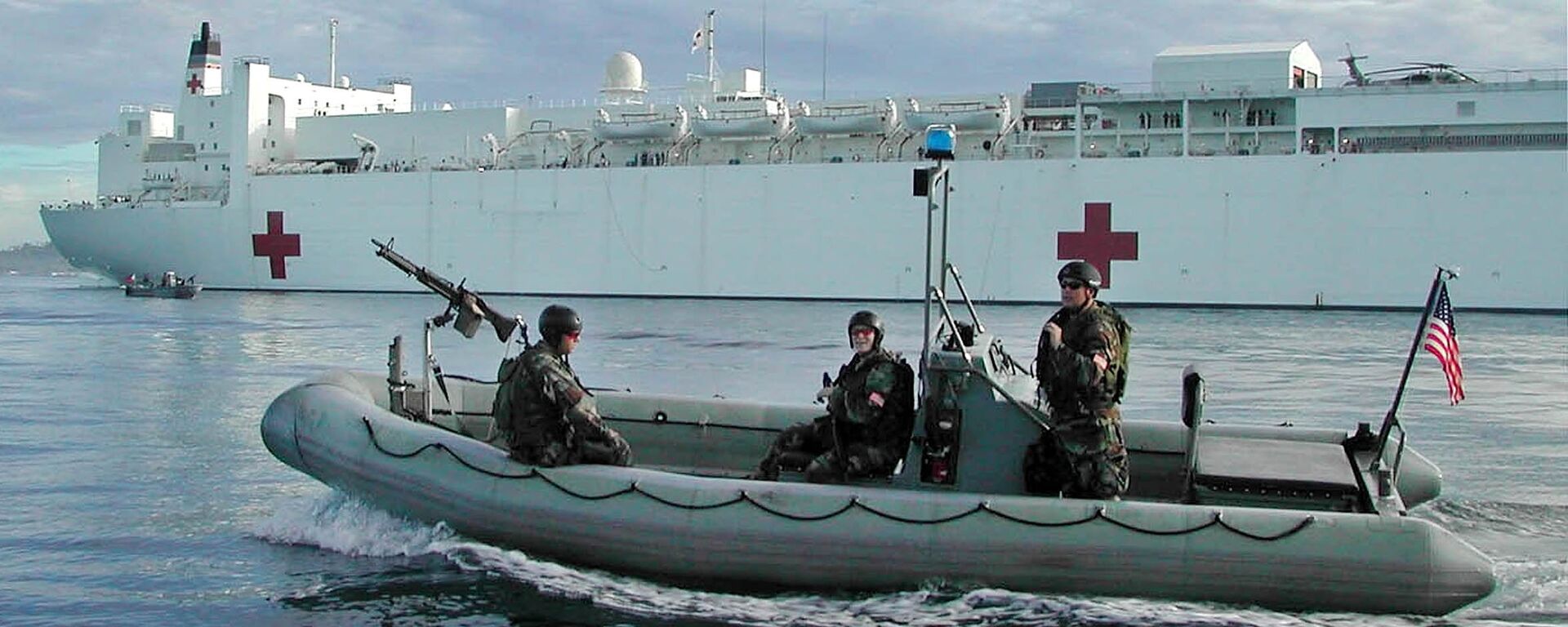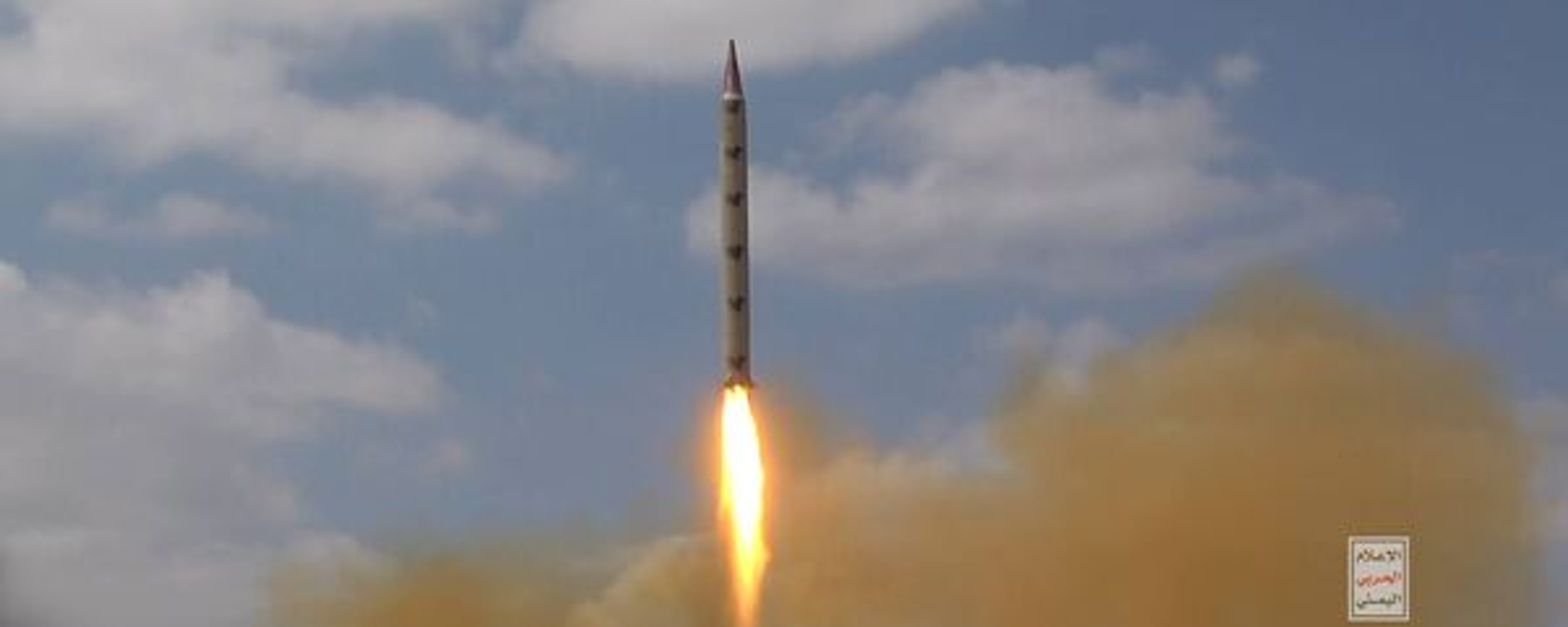Dem Rep Demands Tougher Sanctions as Houthis Threaten US With Quagmire Worse Than ‘Hell of Vietnam’
19:01 GMT 21.10.2024 (Updated: 19:06 GMT 21.10.2024)
![A supporter of Yemen's Shiite Houthi rebels, wears a bandana with with an Arabic inscription that reads, at your service [Imam] Hussein, as he attends festivities marking the holy day of Ashoura, in Sanaa, Yemen, Thursday, Aug. 19, 2021. A supporter of Yemen's Shiite Houthi rebels, wears a bandana with with an Arabic inscription that reads, at your service [Imam] Hussein, as he attends festivities marking the holy day of Ashoura, in Sanaa, Yemen, Thursday, Aug. 19, 2021. - Sputnik International, 1920, 21.10.2024](https://cdn1.img.sputnikglobe.com/img/07e8/09/1b/1120321088_0:160:3072:1888_1920x0_80_0_0_cc4c7ca5ad914ba399efdea48801d066.jpg)
© AP Photo / Hani Mohammed
Subscribe
The Yemeni militia began a stream of drone and missile attacks targeting merchant ships suspected of ties to Israel last November, and started attacking US and British warships in January amid a Pentagon-led effort to “degrade” its capabilities through airstrikes. Nearly one year and $5 billion later, the US operation has yet to achieve its goals.
Democratic Congressman Josh Gottheimer has called on colleagues from both parties in the Senate to ramp up the US sanctions regime against Yemen’s Ansar Allah (Houthi) militia, urging lawmakers to act amid the Biden administration’s inaction on proposed tougher restrictions.
“In recent months, the Houthis, as part of Iran’s Axis of Evil, have escalated their attacks, launching drones and ballistic missiles directly at Israel,” Gottheimer wrote in a letter to Senate Majority leader Chuck Schumer and Minority leader Mitch McConnell on Monday, with the ‘Axis of Evil’ rhetoric an apparent throwback to the early 2000s Bush-era term which culminated in the invasion of Iraq.
“Despite this escalation, the State Department reaffirmed their decision not to reimpose the [Foreign Terrorist Organization] designation on the Houthis. This is deeply troubling, and underscores the need for Congressional action. Currently, a similar version of this bill exists in the Senate, with bipartisan support,” Gottheimer, a member of the House select committee on intelligence, and one of the Democratic Party's most steadfastly pro-Israel House lawmakers, added.
“The Houthis have been targeting ships they believe are destined for Israel using ballistic missiles, drones, and even hijacking vessels by boarding them from a helicopter,” Gottheimer wrote, pointing out that “since March 14th, there have been more than 77 reported attacks on ships in the Red Sea by Houthi rebels. The Houthis’ indiscriminate targeting threatens the more than 117,000 ships that travel through the Bab el Mandeb Strait annually and has forced thousands of ships belonging to companies such as AP Moller-Maersk, Hapag-Lloyd, CMA CGM, and BP to reroute their vessels away from the Red Sea and delay the delivery of goods key to the international supply chain.”
“The Houthis have forged alliances with anti-democratic, authoritarian regimes that violate the values our two nations strive to promote and uphold,” the lawmaker added. “Recently, the Houthis reached an agreement with [Russia and China] pledging not to target Russian or Chinese vessels. This new alignment potentially bolsters the Houthis militarily and grants significant economic advantages to Russia and China at the expense of our economies and national security,” the letter claimed.

13 October 2024, 03:05 GMT
The Biden administration partially reimposed Trump-era sanctions on the Houthis in January, readding the group to the Treasury’s ‘Specially Designated Global Terrorist’ listing, which allows for the blocking of any assets designated persons or entities may have in the United States by the Treasury. In the case of the Houthis, the restrictions appear to be largely symbolic, with most of the movement’s leadership believed to be entrenched in Yemen and never setting foot in the United States.
The White House has yet to relist the Houthis under its ‘Foreign Terrorist Organization’ (FTO) sanctions, citing humanitarian concerns, including access to food and medicines, and fears of a repeat of the dramatic humanitarian crisis Yemen suffered in the wake of a US-backed Gulf coalition’s blockade of the country after the Houthi revolution. Those opposed to the designation fear that reinstating it would worsen Yemen’s humanitarian crisis, while doing little to impact the Houthis’ military capabilities.
Since the Houthis began their campaign of attacks on ships in the Red Sea in solidarity with Palestinian late last year, the US has spent nearly $5 billion on deployments in support of Israel in the Middle East, including billions on a flagging military campaign against the militia. According to a recent calculations by Brown University’s Costs of War Project, the US has spent $2.4 billion on costs associated with operating carrier strike groups and other missions against the Yemeni militia, plus $50-$70 million for additional combat pay to officers and troops.
US-UK attacks have done little to ease tensions, with the Houthis instead ramping up their shipping attacks, and missile and drone attacks on Israel directly – including a July drone strike in Tel Aviv which slammed into a building 100 meters from a US consulate, and a missile attack earlier this month which slipped past Israeli missile defenses and landed in central Israel.
On Monday, Jamal Ahmed Ali Amer, foreign minister of the Houthi-led National Salvation Government, commented on rumors of suspected US plans to launch a invasion of the strategic Yemeni port city of al-Hudaydah, warning that “if [the US] acts rashly” and proceeds with the operation, “the hell of Vietnam will be just a walk in the park.”


